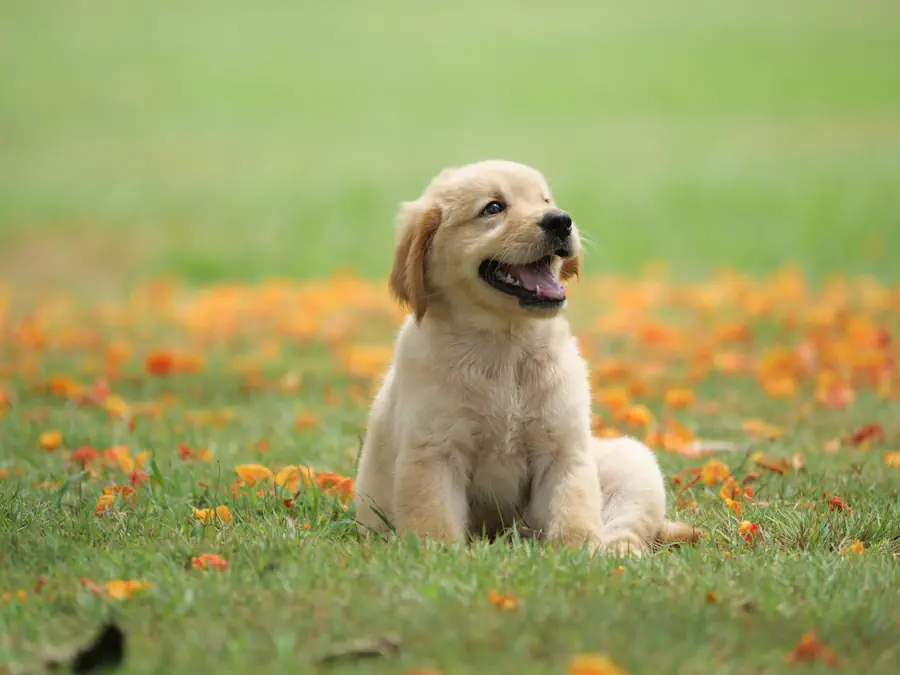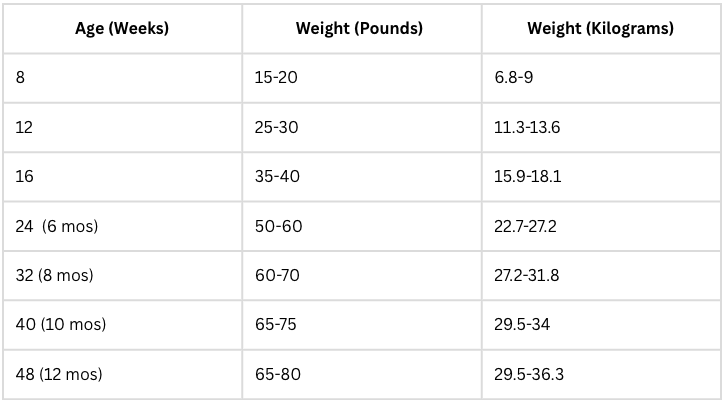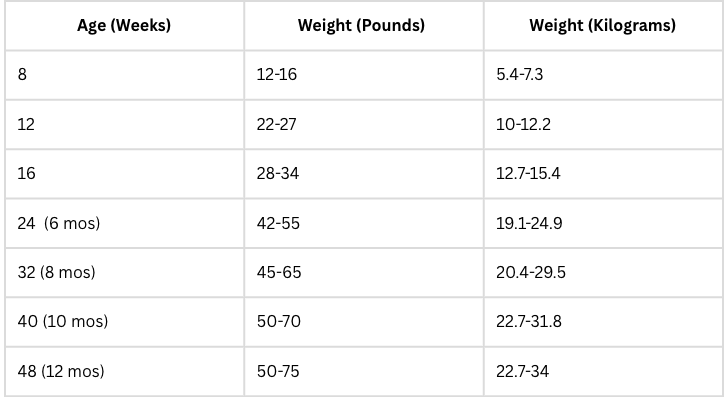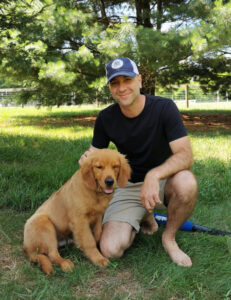6-Month-Old Golden Retrievers: Complete Overview (+ Establishing Structure & Boundaries)
Posted on July 25, 2023 by Galen Kauffman

Key Takeaways:
- 6-month-old Golden Retrievers exhibit a mix of puppy playfulness and adult-like behavior.
- They are known for their friendly and gentle personalities.
- Proper training and socialization are crucial during this stage of development.
- Golden Retrievers require regular exercise and a balanced diet for healthy growth.
- Spaying or neutering can impact their growth, and the timing is essential.
A Peek into the World of a 6-Month-Old Golden Retriever
At 6 months old, your Golden Retriever puppy is growing up fast! This is an exciting stage where they display a charming mix of puppy playfulness and the beginnings of mature behavior. As a proud Golden Retriever owner, it’s essential to understand what to expect during this developmental phase and how to care for your furry companion. Let’s dive into the world of a 6-month-old Golden Retriever and discover what makes this age special!Personality
Golden Retrievers are renowned for their affectionate and friendly nature. At 6 months old, your furry friend will showcase their endearing personality, which includes loyalty, intelligence, and an eagerness to please. They are excellent family pets and get along well with children and other animals.Behavior
Golden Retrievers are generally not aggressive dogs. However, at 6 months, they might display occasional bursts of excitement, especially during playtime. This is typical puppy behavior, and with proper training, they will learn appropriate manners. If you want to know more about Golden Retrievers’ behavior and whether they are aggressive, click here.Energy Level
At this age, Golden Retrievers are brimming with energy. They will enjoy playtime, walks, and engaging in activities that keep them mentally and physically stimulated. Regular exercise is crucial to keep them happy and healthy.Trainability
Golden Retrievers are highly trainable and eager to learn. Their intelligence and willingness to please make them ideal candidates for obedience training. Consistent, positive reinforcement-based training will yield great results. If you’re curious about crate training your Golden Retriever, click here for helpful tips.6-Month-Old Golden Retriever Growth and Weight Chart
How Big Should a 6-month-old Golden Retriever Be?
- On average, male Golden Retrievers weigh between 50-65 pounds, while females weigh around 40-55 pounds at 6 months.
- Keep in mind that individual growth rates may vary, so it’s essential to consider their overall health and body condition.
Male Golden Retriever Growth and Weight Chart
 Remember that these weights are general guidelines and individual dogs may vary. Always consult with a veterinarian for personalized advice on your Golden Retriever’s growth and health.
Remember that these weights are general guidelines and individual dogs may vary. Always consult with a veterinarian for personalized advice on your Golden Retriever’s growth and health.
Female Golden Retriever Growth and Weight Chart
 As with the male Golden Retrievers, these weights are general guidelines and individual dogs may have some variation. Always consult with a veterinarian for personalized advice on your female Golden Retriever’s growth and well-being.
As with the male Golden Retrievers, these weights are general guidelines and individual dogs may have some variation. Always consult with a veterinarian for personalized advice on your female Golden Retriever’s growth and well-being.
What is the Size of a Full-Grown Golden Retriever?
- On average, adult male Golden Retrievers stand between 23-24 inches tall at the shoulder and weigh 65-75 pounds.
- Adult females are slightly smaller, standing about 21.5-22.5 inches tall and weighing 55-65 pounds. To learn more about choosing the right crate size for your Golden Retriever, click here.
Growth Distinctions among British, Canadian, and American Golden Retrievers
Golden Retrievers come in different types – British, Canadian, and American – each with its own unique characteristics. Let’s explore the distinctions between them:- Size variation: British Golden Retrievers are typically more compact and stockier than their American and Canadian counterparts, which tend to be larger and more robust in build.
- Coat differences: British Golden Retrievers often have a cream-colored, wavy coat, while American and Canadian Golden Retrievers commonly display a rich golden coat with varying textures, from straight to slightly wavy.
Types Of Golden Retrievers: Why There Are Really Only 3 Kinds
- British Golden Retrievers: Known for their stockier build, broader heads, and darker coat colors, British Golden Retrievers have a calmer and more laid-back temperament.
- Canadian Golden Retrievers: Recognized for their endurance and adaptability, Canadian Golden Retrievers often excel in outdoor activities like hunting and agility.
- American Golden Retrievers: These dogs have a lighter coat color, more feathering, and are highly energetic and outgoing.
Does Neutering/Spaying Impact the Growth of My Golden Retriever?
Neutering or spaying a Golden Retriever can affect their growth, and the timing of the procedure is crucial.When’s the Best Time to Spay/Neuter My Golden Puppy?
- Many veterinarians recommend waiting until your Golden Retriever is fully grown and has reached physical maturity before spaying or neutering, which is usually around 1 year old.
- Delaying the procedure allows your dog’s bones and joints to develop properly.
How Much To Feed A 6-Month-Old Golden Retriever
At 6 months old, Golden Retrievers are still growing, and their nutritional needs are specific.- Choose a high-quality dog food that is specially formulated for puppies to support their growth and development.
- Consult with your veterinarian for personalized dietary recommendations based on your dog’s specific needs. For a list of recommended dog foods for Golden Retrievers, check out our blog.
How much water should a 6-month-old Golden Retriever drink?
- Provide your Golden Retriever with a fresh supply of clean water throughout the day, especially after exercise and play.
Recommended Sleep Duration for a 6-Month-Old Golden Retriever Puppy
How much sleep should dogs get per day?
- At 6 months, Golden Retrievers need about 14-16 hours of sleep per day.
- Puppies may require even more sleep to support their growth and development.
Underlying issues to look out for with excessive or inadequate sleep
- Pay attention to any changes in your dog’s sleep patterns, as excessive or inadequate sleep may indicate underlying health issues.
- If you notice significant changes in sleep duration or behavior, consult with your veterinarian.
Meeting the Exercise Needs of Golden Retrievers: Keeping Them Active and Healthy
Golden Retrievers are highly active dogs that require regular exercise to keep them happy and healthy. Regular exercise helps channel their energy and reduces the likelihood of behavioral problems. Engage in interactive play, walks, and activities that challenge their minds and bodies.Strategies for Addressing Puppy Biting Behavior
Puppies can get nippy during their fun exploration of the world around them. The good news is that this is a natural habit for pups, and there are ways to deal with it.- Positive reinforcement training: Reward good behavior with treats or praise to encourage non-biting interactions.
- Redirect focus: Provide appropriate chew toys and redirect the puppy’s biting behavior towards these toys.
- Socialization: Expose the puppy to different people and animals to help them learn appropriate play and bite inhibition.
- Time-outs: When the puppy becomes too bitey, temporarily remove attention to discourage the behavior.
- Consistency and patience: Stay consistent with training and be patient, as addressing biting behavior takes time and persistence.
The Optimal Time for Obedience Training with Your Golden Retriever
Obedience training is crucial for shaping your Golden Retriever’s behavior and ensuring they grow up to be well-mannered companions. Remember that young puppies have a lot of energy and may be more rambunctious than adult dogs. They are, however, eager to please and learn new things. Adult dogs may be more set in their ways but can still benefit from training.Conclusion
At 6 months old, your Golden Retriever is embarking on a critical phase of development. Understanding their unique needs and providing proper care and training will lay the foundation for a happy and healthy adulthood. Embrace this journey with your lovable companion, and you’ll create cherished memories together.FAQs About 6-Month-Old Golden Retrievers
Are Golden Retrievers fully grown at 6 months?
Golden Retrievers are not fully grown at 6 months. They are still considered puppies and will continue to grow for several more months.How far should I walk my 6-month-old Golden Retriever?
A 6-month-old Golden Retriever can handle walks of around 30 minutes to an hour, depending on their energy level and fitness. Always consider your dog’s individual needs and consult with your veterinarian.How do I keep my Golden Retriever happy?
Keeping your Golden Retriever happy involves providing regular exercise, mental stimulation, proper nutrition, and lots of love and attention.Why is my 6-month-old Golden Retriever always hungry?
Golden Retrievers are known for their hearty appetites, especially during growth stages. Ensure you are feeding them a well-balanced diet and avoid overfeeding.Why do Golden Retrievers eat leaves?
Eating leaves might be a sign of boredom or curiosity. Ensure your Golden Retriever is getting enough mental and physical stimulation to prevent undesirable behaviors.Is it better to underfeed or overfeed a dog?
Neither is ideal. Feeding your dog the appropriate amount of high-quality food is essential for their health and well-being. Overfeeding can lead to obesity, while underfeeding may result in malnutrition. Consult with your veterinarian for the right feeding plan for your Golden Retriever.
Galen Kauffman has been connecting quality Golden Retriever breeders with loving families since 2012. He is the founder of My Golden Retriever Puppies. Galen and his wife have four children and enjoy spending time together, traveling (including 4 years living overseas), exploring the outdoors, and building lasting connections within the Golden Retriever community.
